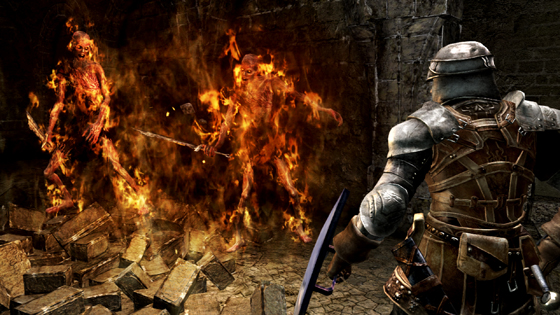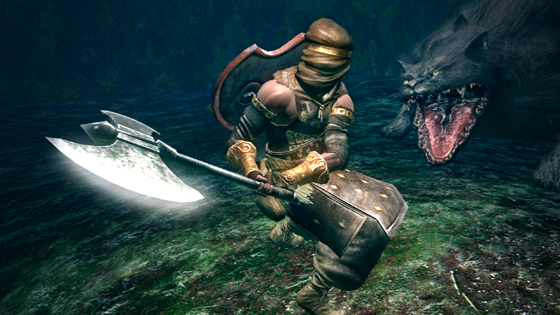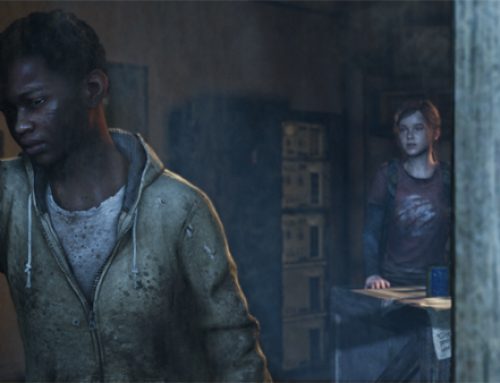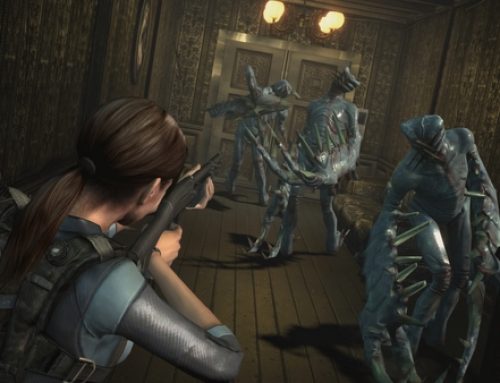Like its predecessor, “Demon’s Souls,” From Software’s “Dark Souls” is the closest thing modern video gaming has to a Mt. Everest. The action role-playing game can be punishingly difficult and occasionally unfun, but every small success feels like a massive triumph. Once you’ve finished the game or even earned all its achievements or trophies, you can proudly proclaim, “I beat that,” even if you threw a controller out your window in anger.
You play as an undead hero, cursed to walk the land of the living, who scorn and lock away your kind. Freed from your prison cell at the start of the game, you venture off to reclaim your soul and end a dark scourge afflicting the world.
To accomplish that aim, you’ll traverse a desperate, lonely world full of fearsome, powerful enemies and run-of-the-mill foes who can quickly end your character’s life if you get careless. The tools available vary widely, depending on how you build your hero. You can be an armor-clad tank, wading into battle with a massive shield and six-foot sword, or you can be a nimble wisp of a thing, dodging enemies’ attacks and stabbing them from behind. You can make a sorcerer who specializes in offensive and defensive magic, or a priestlike character who uses the power of ancient gods to heal himself as he dispenses divine justice.
“Dark Souls'” powerful enemies, many of whom you meet early on only to fight later, give the game a bleak, foreboding tone that’s only enhanced by the game’s excellent score. It’s a shocking thing to say, but it’s entirely possible that the next “Elder Scrolls” game, Bethesda Softworks’ “Skyrim,” might only have the year’s second-best role-playing game soundtrack once it releases.
As you defeat enemies, you’ll earn souls, which serve as both experience points used to level up your character and currency spent to buy upgrades and equipment. It’s a great setup, as you’re constantly deciding whether to upgrade your character’s core stats, enhance equipment, learn a new spell or buy accessories like damage-dealing poisons or firebombs to throw at other bad guys.
Compounding the tension around soul allocation is the fact that when your character dies in “Dark Souls,” he or she loses all accumulated souls. To get those souls back, your character must respawn at the nearest bonfire/save point, then fight her way back to her own bloodstain and recover the lost loot. If you fail en route, your old bloodstain, and any souls it represented, vanishes. A new one appears at the locale of your most recent death.
This gameplay element, combined with the constant threat of danger that even low-level enemies pose, ratchets up the tension and ensures “Dark Souls” will feature tons of trial and error for all but the most skilled players. It’s the kind of game where you can easily spend two hours grinding out kills to earn incremental improvements. It feels like a major accomplishment when you play for an hour so that your scimitar does five more points of damage each swing.
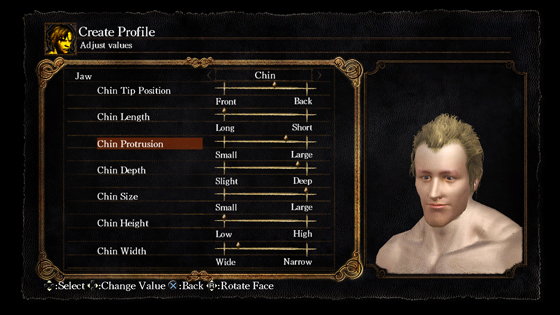
In "Dark Souls," it's best to make your character ugly. He'll die a lot, and you won't want to get attached to him.
My experience with invasions and summoning was mixed. Summoning another player to my world to help with a fight took about a half-dozen tries before a success, though it was great once I got it to work. Invasions, though, seemed more problematic. I attempted one, and was easily slaughtered by a player who I could barely damage. Meanwhile, one hit from him wiped out half my wanderer’s health. I was playing an evasive, nimble build, and though I could dodge most of my foe’s attacks, he only needed to land two blows to kill me. Meanwhile, every time I hit, I did about five points of damage.
Here’s what I think the problem was: Because soul levels are used both as currency and to level up, it’s possible for players to invest all their souls in making sure they have the most tricked-out equipment, while staying relatively low-level. In other words, you can have a Level 3 character to start the game, spend 15 hours playing and buying/upgrading equipment, and still be the same level as a brand new character, for matchmaking purposes. A lot of players take this upgrade approach. I, however, took the opposite tack, boosting my core stats and leveling up. When I invaded another player’s game at Level 22, I was brought into a late-game area I didn’t recognize. My opponent had earned more than 600 achievement points in the game, while I had about 60, so not only did he have a huge advantage in equipment, he had a much better idea of what he was doing.
[gametrailers 721543]
My second invasion will have to wait a bit.
Using soul level as a basis for matchmaking, as opposed to something fairer like, say, total souls banked, is one of two areas in which “Dark Souls” is harder than it needs to be on new players. The other is that it’s possible you’ll spend 15 hours grinding to build up a character, only to realize that whatever you’ve come up with is poorly suited to your strengths as a player. Your options at that point are continuing on with the same character and hoping that everything clicks eventually, or creating a wholly new character from scratch and replaying the beginning of the game for the zillionth time. An option to cash in all your levels (at a penalty, of course) and respec your character would be a little noob friendlier without necessarily making the game easier.
“Dark Souls” is an exercise in patience, a test of your skills and proof that games don’t have to be easy or dumbed-down to be enjoyable. It’s a throwback to an era of gaming in which losing a key battle meant throwing away a half-hour of “progress,” and having to wade once more through a frustratingly familiar corridor filled with enemies.
Unsurprisingly, it’s not a game for the casual or part-time gamer. “Dark Souls” is meant to be obsessed over, played for dozens of hours so that its secrets and nuances can be discovered and mastered. If you’re not prepared to go all-in, you’ll likely get discouraged. As someone with a stack of games to review and limited free time, I’m not the idea “Dark Souls” player. I put 20 hours into the game for review purposes, and will be coming back to and hopefully finishing the game over the course of several months, not weeks. But just as I’m frustrated that I didn’t make it further in the game, I can appreciate the fact that “Dark Souls” is a game I would have obsessed over back in the days before I tried to review a game every week or two.
“Dark Souls,” rated M, costs $60 on Xbox 360 or PlayStation 3. I played an Xbox 360 copy of the game provided by the publisher for review and bought a strategy guide at retail. I didn’t finish the game, a rarity for titles I review, but I spent 20 hours or so on the campaign and sampled player invasions/summoning.
Part of the reason I decided to review “Dark Souls” without finishing it, deviating from my usual policy, is that I found playing the game for review, with a self-imposed goal of finishing the game by a specific date, made my frequent defeats even more frustrating. Once I decided to let go of the idea of finishing the game by a specific time, grinding through levels and farming souls in the same area to upgrade my gear and give my character an edge in battle felt like a productive use of my time again. Given that this deliberate pace is how I imagine most will play “Dark Souls,” I felt like it suited my review to give myself a goal of playing for 20 hours and having as much fun as possible, rather than finishing. Though I can’t yet look back fondly on my many triumphs over every one of the game’s fearsome, frustrating bosses, I feel like I get it.
Follow Eric Wittmershaus on Twitter and join the GameWit blog group on Facebook.

